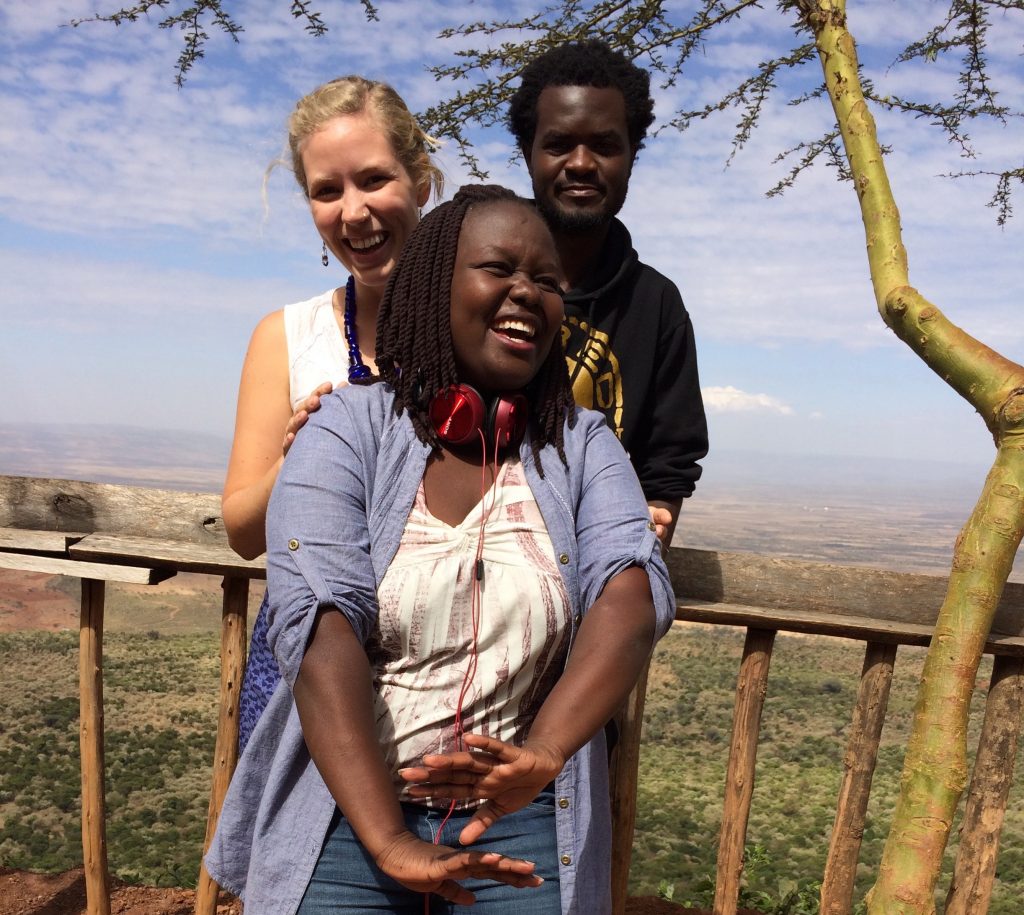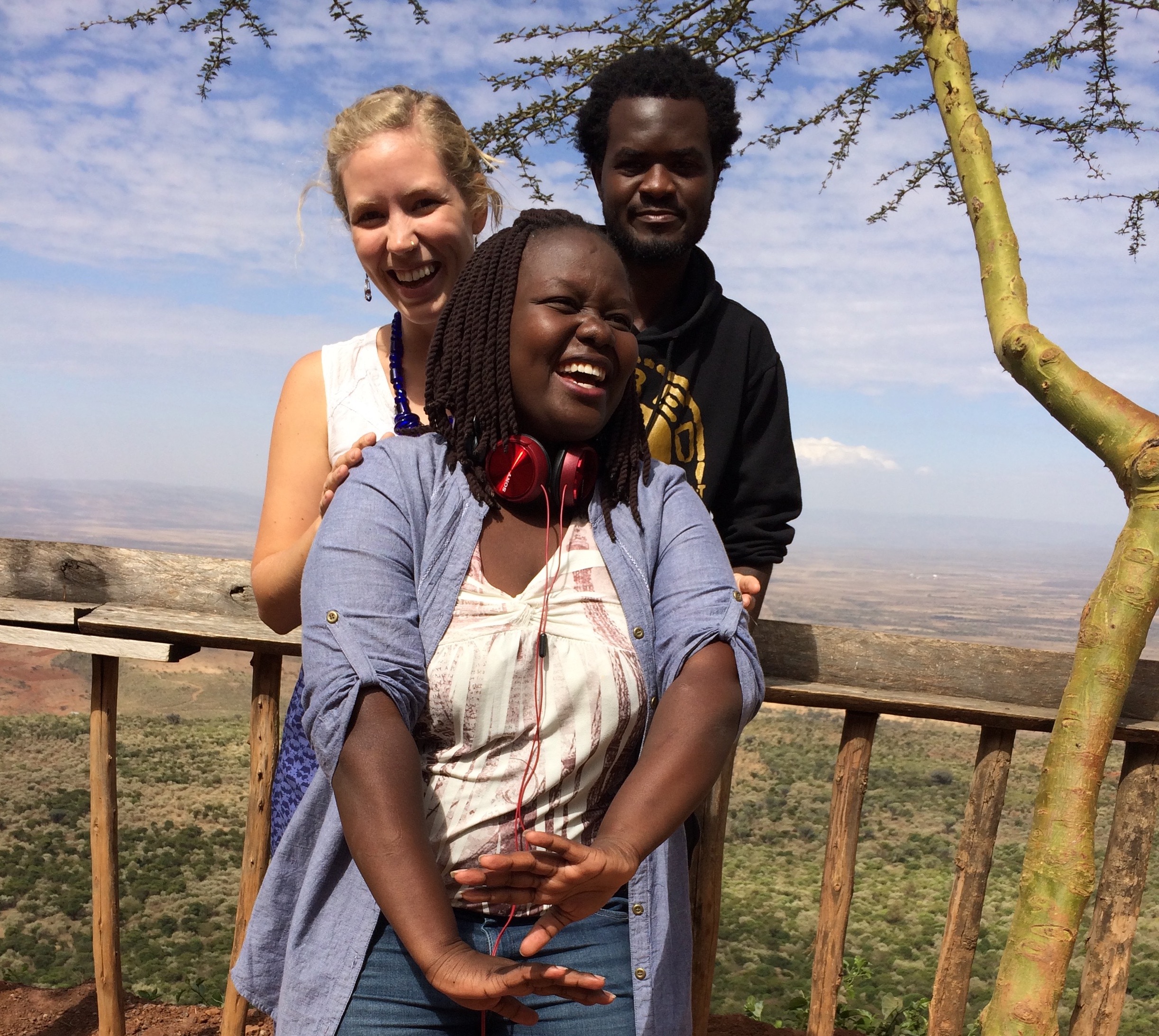
Nairobi Beat
“I’ve never been in a place with so much innovation and creativity and determination,” says Creative Arts Therapies master’s student Sarah Moore about her thesis work in the Kibera slum of Nairobi, Kenya. “People are incredibly inventive. The sense of community, the rhythm, and vibrancy of life is so strong.”
Moore’s thesis work focused on evaluating the effectiveness of JABE, a pilot therapeutic arts and social work program for Kenyan teens. The students always wanted to play games and learn something new, she says. She thought she’d teach them to play musical chairs, but the facility didn’t have any chairs. She improvised. “They all had rubber flip-flops,” she says. “So I taught them ‘musical flip flops.’”
Moore spent six months in Kibera, one of the largest urban slums in Africa. Living conditions are difficult. Access clean water and healthy food is limited; violence, drugs and disease (particularly the HIV/AIDS epidemic) are daily facts of life. The community-based JABE program aims to promote peace, healing and empowerment through dance and other therapeutic arts.
Through surveys, interviews with program participants and focus groups, Moore evaluated whether the program met its stated goals. The answer was yes, and much more. “I got to spend time around these amazing young people,” she says. “I learned that this program is really a family for the kids involved. It provides them with a safe space. It helps them develop secure attachments and healthy relationships.”
Moore’s project was partially funded by Columbia’s Ellen Stone Belic International Research Award. She adds that it wouldn’t have been possible without the guidance of her advisor and departmental thesis coordinator Laura Downey as well as the collaboration of the JABE program leaders. JABE is part of the Kibera Social Arts organization.
